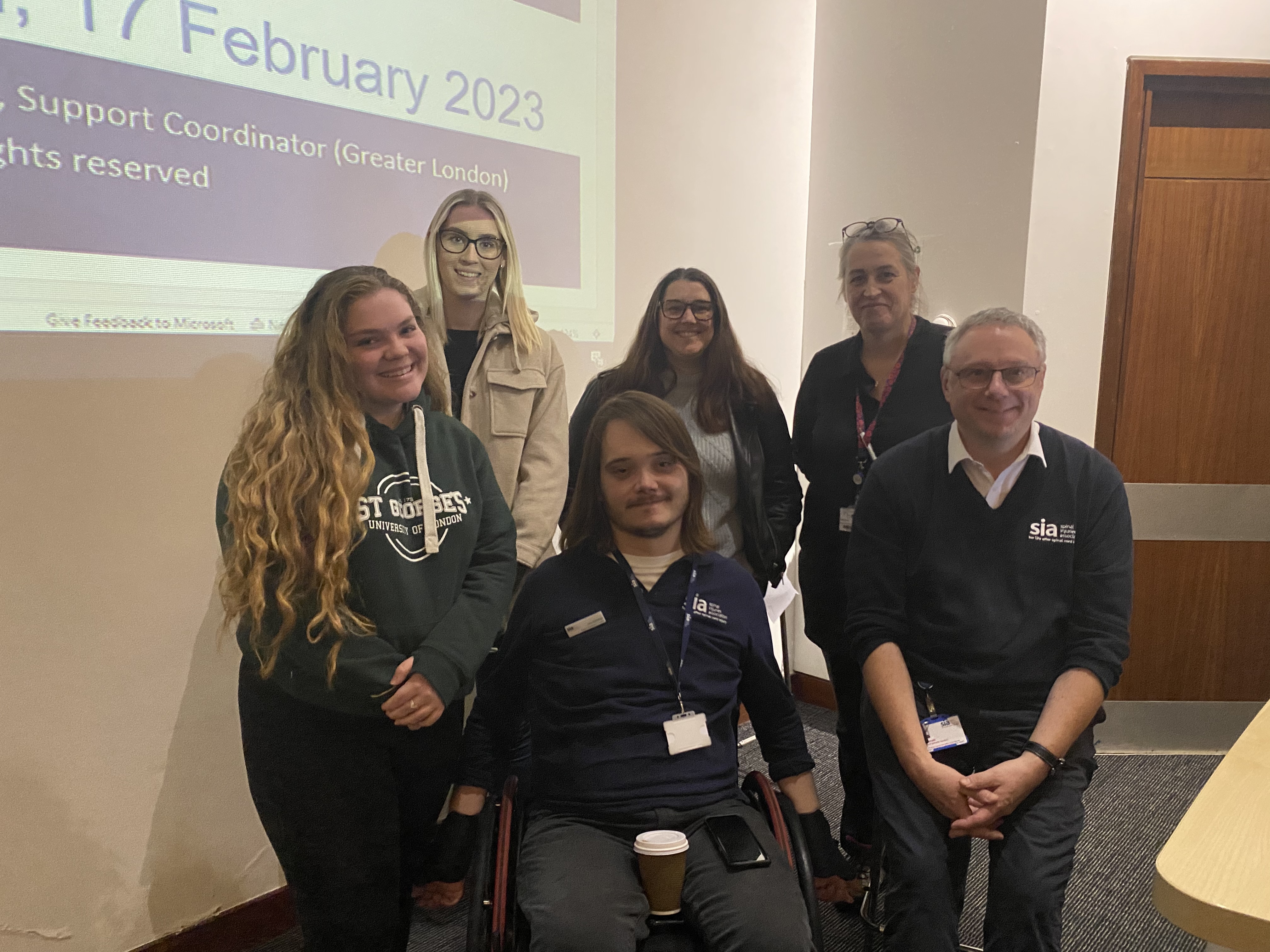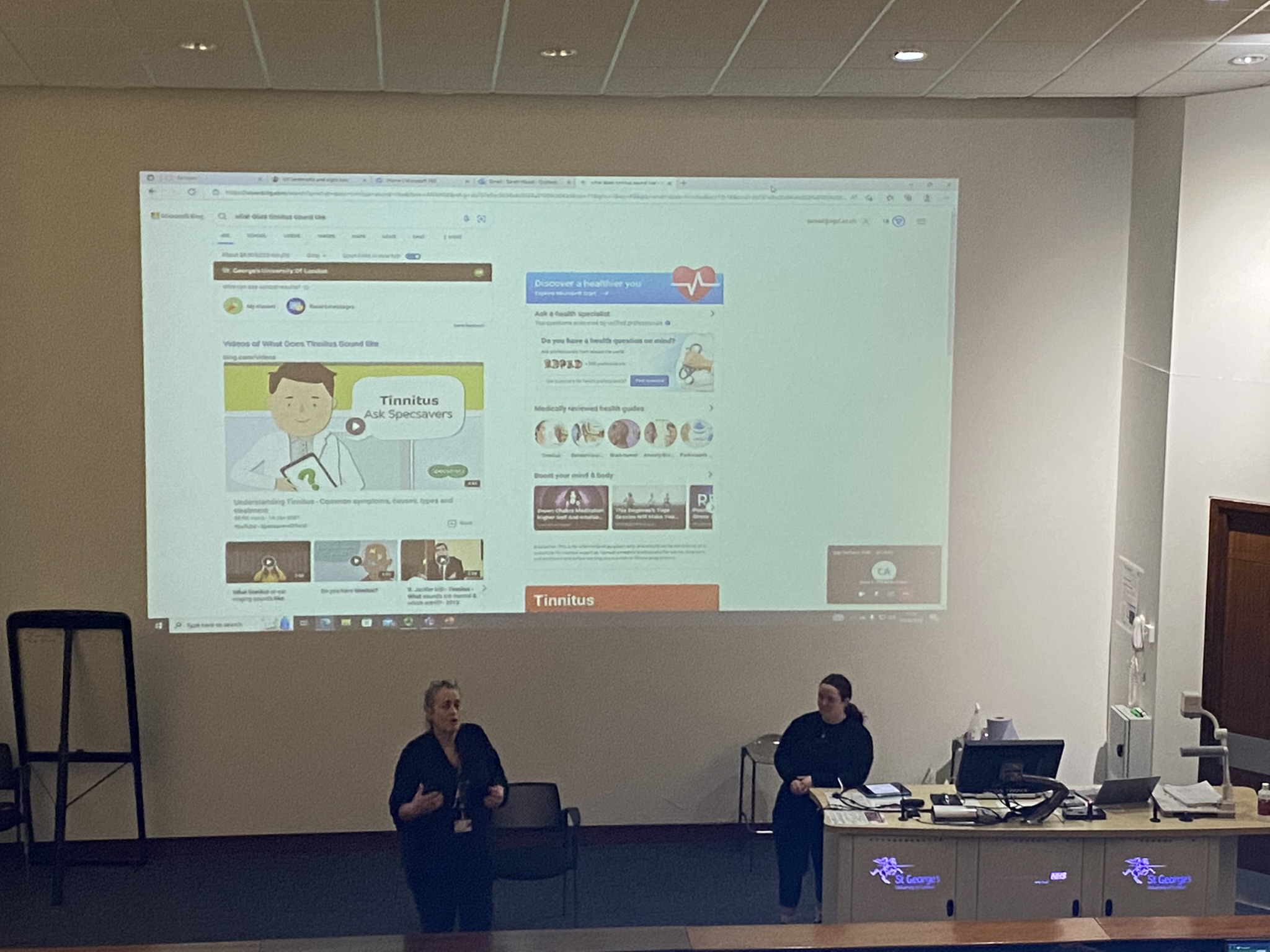Embedding lived experience to inform good clinical practice
Disability Day was a valuable day for Paramedic Science students to take some time out of usual lectures, study, and clinical practice to reflect on different perspectives of persons with disabilities.
The event was designed by Sarah Wood, Senior Lecturer and Multidisciplinary Lead in Paramedic Science, to not only to give students a broader spectrum of understanding of patients who have differing physical abilities, but also to think about person centred approaches to interact with patients by listening to persons with lived experience.
Structure of the day
There were a number of sections including:
- Spinal Cord Injury (SCI)
- Sensory Loss
- Sight loss
- Smell and taste loss
- Hearing Loss and Tinnitus.
Each section focused on the implications of injury and loss, and lived experience of the loss.
 Sarah Wood with Year 3 Paramedic Science Students, special guests from Spinal Injuries Association (SIA) Mark Jarrat, Clinical Nurse Specialist and Jack Mannings, Support Network Coordinator with lived experience.
Sarah Wood with Year 3 Paramedic Science Students, special guests from Spinal Injuries Association (SIA) Mark Jarrat, Clinical Nurse Specialist and Jack Mannings, Support Network Coordinator with lived experience.
Open space
Experts by experience gave valuable insights into how to care for patients and clients in sensitive ways. This was a fun and engaging way to listen and learn in an open atmosphere where people felt they could ask any questions.
Practical advice
Jack Mannings, Support Network Coordinator spoke about how SIA can support people with concrete ways of not just coping but thriving with spinal chord injuries.
Holly Parker, Year 3 Paramedic Sciences student and Sarah also spoke openly and honestly about how their hearing differences impact them - offering food for thought to students on how to support patients and clients with different needs. Holly is a student in the same year as the Paramedic Science students in attendance and it took some bravery to be vulnerable and teach peers - a very impactful way of informing good clinical practice.

Sarah Wood and Holly Parker sharing their lived experience.
Person-centred key takeaways from the session:
- Be person-centred in asking what you can assist with and introduce yourself so that people know who is guiding them.
- Become familiar with autonomic dysreflexia a life threatening condition that impacts people with spinal chord injuries.
- Learn about the various types of Eye conditions | Your Eye Health (guidedogs.org.uk
- Take a minute to look at UK landmarks and sight loss (guidedogs.org.uk)
- Consider online audiometry testing
If you would like to discuss any of the issues raised in the blog post and embedding lived experience in your learning and teaching, please get in touch
Sarah Wood is Senior Lecturer and Multidisciplinary Lead in Paramedic Science.